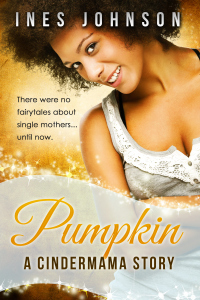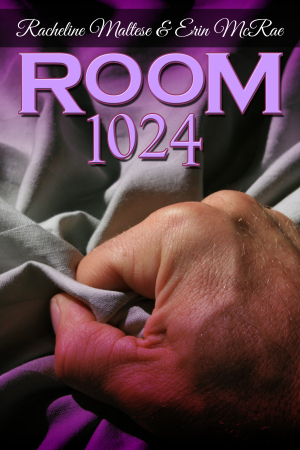Racheline Maltese's Blog, page 26
March 12, 2015
Guest Post: Ines Johnson
Here at Avian30 we love stories that subvert tropes, and stories about kickass chicks. Which means we’re very pleased today to host Ines Johnson, whose new book, Pumpkin: A Cindermama Story, is out from Heartspell Media today.
Girl On Her Own Horse
Have you been paying attention to the evolution of the Cinderella story? If you’ve watched the Disney blockbuster, Frozen, then you have. Young girls and women are no longer waiting around for a man to come by on his horse, sweep them off their feet, and give them shoes.
Okay, I doubt any of us would turn down the shoes!
My point is that women are now taking the reins of their own stories and rejecting the Cinderella trope of changing themselves into someone new. In many, dare I say most, of these stories the prince doesn’t pay attention to the Cinderella character in her ordinary world of working 9-5pm with grime under her nails and threadbare clothes. He doesn’t look her way until she gets magicked into expertly applied makeup, a binding, shape-shifting corset, and brand new shoes.
My first notice of this was in the film Working Girl. This 80’s retelling of the Cinderella story featured a bright secretary who had dreams of entering the boardroom with a briefcase instead of coffee. When her wicked boss steals her idea, the secretary seizes an opportunity to steal into a high profile business meeting by pretending that she’s her boss, while also wearing her boss’s dress and shoes. Melanie Griffith, as the secretary, uses Harrison Ford’s charming character to get her into the board room’s door. When the business deal goes south, Griffith doesn’t wait for the knight in a business suite to rescue her. Instead, she shows off her ‘head for business and bod for sin’ in order to win a business deal, thwart her boss, and get her man.
A decade later Drew Barrymore retold the Cinderella story in Ever After. In a pivotal scene when Barrymore’s character, Danielle, has been taken prisoner by the evil Pierre Le Pieu, the audience holds their breath as the prince leaps onto his horse and heads off to rescue her. But Danielle picks up not one, but two swords, and swashbuckles her way to an escape. As she’s walking out of the castle a free woman, the prince arrives moments too late with her shoe in hand.
Nearly another decade later came another retelling with Penelope. Penelope is an heiress born under a curse that can only be broken in the face of true love. The problem? Penelope’s face doesn’t inspire sonnets and poems as much as it does a hankering for breakfast meats. Penelope’s snout nose has caused her to be rejected her whole life, including rejection from her own mother. When she finally finds a man willing to tolerate her looks and break the curse, she comes to the realization that she likes herself just the way she is. And just like that, the curse is broken and Penelope’s outside matches her glowing inside.
In today’s stories, women don’t wait around for men on horses. They take the reins, defend themselves, and declare love to their own reflections. They’re now even qualified to deliver true love’s kiss to their own sisters as we saw in the blockbuster Frozen.
In my fairytale retelling, Pumpkin: a Cindermama story my heroine has given up on fairytale love. Single mother Malika “Pumpkin” Tavares lost faith in fairytales after she fell for a toad. Town royalty Armand “Manny” Charmayne has been searching for his soulmate all his life, whom he’ll recognize at first sight by a golden aura, that only he can see, surrounding her person. Manny doesn’t see gold when he meets Pumpkin, but the more he gets to know her the more he considers defying fate, if only he can convince her to take a chance on love again.
Pumpkin: A Cindermama Story is available now on Amazon.
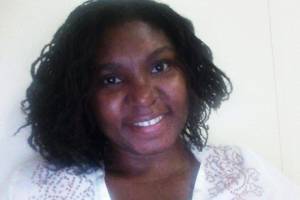 Ines writes books for strong women who suck at love. If you rocked out to the twisted triangle of Jem, Jericha, and Rio as a girl; if you were slayed by vampires with souls alongside Buffy; if you need your scandalous fix from Olivia Pope each week, then you’ll love her books!
Ines writes books for strong women who suck at love. If you rocked out to the twisted triangle of Jem, Jericha, and Rio as a girl; if you were slayed by vampires with souls alongside Buffy; if you need your scandalous fix from Olivia Pope each week, then you’ll love her books!
Aside from being a writer, professional reader, and teacher, Ines is a very bad Buddhist. She sits in sangha each week, and while others are meditating and getting their zen on, she’s contemplating how to use the teachings to strengthen her plots and character motivations.
Ines lives outside Washington, DC with her two little sidekicks who are growing up way too fast.
Find Ines Johnson online: Goodreads| Facebook | Twitter | Website
March 11, 2015
I am currently on a plane to Los Angeles. I am not entirely sure why.
For the last five years I’ve gone to Los Angeles every February. That started as a fan pilgrimage to a Doctor Who con, morphed into an excuse to see friends who don’t (or no longer) live near me, and in the last two years has become something of a professional necessity. The reality is that people offer to pay me to write things for them when I go to fan cons in Los Angeles. The other reality is that Erin and I are writing a book series about LA, and like any New Yorker it’s a city I have a difficult relationship with. Erin has never been.
You will note, however, that not only am I writing this from a plane, I’m writing this in March. This year, my day-job schedule shifted in a way that meant I was needed in Europe (hence a recent whirlwind tour of Austria, Slovakia, Hungary, and Finland) the same weekend I was meant to be in LA, so I missed my friends, I missed some business, and Erin and I had to cancel a reading in Anaheim and some other book related stuff.
As I continue to work on an increasing number of scripted and serialized projects and as I have an increasingly intense attachment to the city due to our book series, I got sad. Really, really sad. I’m a symbolic creature, and the cancellation of the trip hit me in my spots. I always think people — and the universe — want me to fail, and I have built my life on refusing to do so.
So I planned a new trip, sort of on a whim. I’d never been to Paleyfest before and that seemed as good an excuse as any. I could do some fan stuff and maybe see some fan people, pitch some Paleyfest related articles to places I freelance for, do book research, and see what other business I could scare up. I could touch the ocean, and I could go to my cathedral.
And now here we are, and I am going to Los Angeles alone, while I’m miserably jet-lagged from the European trip and exhausted from a three-day writers room in New York. And, more or less as anticipated, I have articles to write, people to see, a few meetings to attend, book research to do, and rituals to be fulfilled.
It’s all good, and I am, besides, a solitary creature.
But I am going to Los Angeles alone. Los Angeles who scares me, Los Angeles who whispers to this native New Yorker that I was not actually born at the center of the world; Los Angeles who seduces me, and Los Angeles who is filled with people who perhaps think I’m not good enough for her fair shores. Well, there’s another thing I’m all into refusing.
When I first went out to LA in the late-90s, I felt too brunette and too ugly to endure the commercial shoot in Bel Aire that I was there to face. The whole trip was bizarre and awkward, but the highlight of both was probably myself and a pair of lovers crashing the Miss Teen USA California pageant at an airport hotel and me missing my flight.
While I have no intention of repeating those particular events, they are germane. Because above all else I am in Los Angeles not for its magic, but for mine. I carry a strange serendipity with me. Whether this is a form of witchy luck or the ability to apply narrative to and interpret destiny in anything, magic comes to me. It always has, solemn and strange and filled with loud laughter.
I am currently on a plane to Los Angeles, and there I have some stuff to do. But I will have absolutely no idea why I am on this plane until some moment there comes. Sometimes, I don’t share these moments. They are too private, too strange, and serve as the talismans that allow me to do the things I’m trying to do.
On the other hand, sometimes I take pictures. And, sometimes, I even tell stories.

March 10, 2015
My letter to the RWR
Below is the letter I wrote in response to the RWR article we’ve been talking about over the last few days. I know many other members have also written to the RWR about their displeasure, and I continue to want to emphasize that no individual owns this issue, effort, or response. If you have something to say about this, you should do so in a way that is the most comfortable for you and best serves your needs.
For me, this will be my last significant contribution to this specific conversation until such time as RWA/RWR responds.
Thanks again!
To the Editor:
As a romance writer, queer woman, and someone who has been an active Internet user since 1990, I was disappointed in and offended by Jennifer Fusco’s Marketing Insider column focusing on social media tips.
Overall, the tips seemed to be fear-based and defensive. Don’t be happy, don’t be sad, don’t talk about your real life, and don’t talk about controversial topics.
While it is always important for everyone to remember the consequences of their words online, identifying issues that impact the basic civil rights and equality of marginalized groups as topics to be avoided is naive, hurtful, and implies that LGBTQ+ people and people of color don’t read and write romance. It was particularly ironic for RWR to include such advice in an issue that also focused on diverse romance. Is RWA truly committed to diversity?
When I raised my concerns on Twitter (violating several social media suggestions in the article — stating my location, being cranky, talking about my sexuality, and being “controversial”), the discussion got significant traction, and everyone was outraged by Fusco’s piece. That discussion also brought me almost 200 new followers on Twitter, 1,000 hits on my blog, and new sales, highlighting that Fusco’s advice wasn’t just offensive, but bad for business.
I would strongly recommend that RWR and/or RWA apologize and state that they do not take an official position that discourages their members from discussing social and racial justice. I also hope that in the future RWR refrains from publishing articles that seem to encourage silence in the membership and shame authors for their sexuality, attire, outspokenness, and success.
Thank you for your time and attention.
Sincerely,
Racheline Maltese

March 9, 2015
Politics, Social Media, and the RWR (or, “hey, my Twitter feed just exploded!”)
Sunday morning I crankily tweeted about an excerpt of an article in the new Romance Writers Report (the magazine published by the Romance Writers of America for its membership) that offered advice on using social media. The excerpt suggested that writers be careful not to express extreme opinions on topics including “gay marriage, or Ferguson.” The article did not state what an extreme opinion was on any of those topics, but went on to suggest writers avoid stands and just say things like “I’m glad this is being discussed” or expressing sadness.
Y’all, among the things I write is gay romance, so this advice is actually terrible for me. One of my recent projects is, in fact, a bisexual interracial romance about a polyamorous couple. So yes, I’m going to talk about gay marriage and racial justice. Also, for fuck’s sake (hi, we do curse at this blog), my co-writer and I are both queer. We’re not controversial political positions. We’re people, who tell stories.
I didn’t think the whole thing would gain the amount of traction that it did (although I am thrilled it has), and for unrelated reasons quickly had to leave the Internets for a writers room on a new project you’ll be hearing about soon. Today, I’m back at my desk at my day job in NYC for the first time in 3 weeks after a lot of business travel; Wednesday night I leave for Los Angeles.
Which is to say, I am trying to keep up with all the great observations, heated discussion, questions, enthusiasm, and new Twitter interactions the whole event has generated. Chuck Wendig has written about it; John Scalzi tweeted about it; Courtney Milan wanted to make sure I was planning to write a letter to RWR about it (I am, and anyone else who wants to should too).
Now, to be honest, in the wake of this article (which has other troubling areas that include slut-shaming about how authors dress and a suggestion writers not express too much happiness about their successes lest it seem they are putting on airs), I did spend a little time thinking about political opinions outside of LGBTQ rights and other social justice I express strongly on Twitter, and if there is room for them there in a way that fits with my writing. In particular, I get very intense about the vaccination issue — vaccinations are important and if you are not immunocompromised in a way that means you can’t have them, you and your kids should get them.
When I tweet about that, I do sometimes lose followers. But the fact is, the vaccine issue is part of who I am as a writer too. One of my book series with Erin has an autistic hero. It is as reasonable for me as a writer to speak up on debunking the autism-vaccine link (there isn’t one), as it is for me to speak up about gay rights or social justice. It’s relevant to my stories, it’s relevant to my world views, and it’s relevant to my brand.
And while it is true political opinions can be alienating to some readers, and that writers can feel like we live and die by our sales, we actually live and die by our words. And it is our humanity and passion, not an indistinguishable acceptability that drives the social media connections that can help us get our books into the hands of the readers for whom we are creating the right stories.
The whole discussion has had some fantastic branches. Diverse romance, for example, has to mean more than M/M romance. Meanwhile, the idea that non-white heroes and heroines mean a romance is not “mainstream” has to go and has to go now. And the fact that stories like this get the most attention when amplified by male voices like Scalzi and Wendig remains troubling, no matter how much I appreciate the signal boosts or how responsibly they work to engage these items.
Romance is a genre that is mostly written and read by women, and it contains a fascinating mix of both conservative (in a non-political sense) fantasy and feminist discussion of desire. Among many other things, the romance genre shows us both who woman are and who women are told to be, and how we — all in very different ways — navigate those shoals.
And it’s for that reason, in particular, that I don’t think the RWR did well by its members by publishing an advice piece (for which its author was paid the standard rate of $.15/word with our dues money) that felt like it was telling us to be good girls who don’t rock the boat — especially if we’re gay or women of color.
RWA has worked hard in the last several years to embrace diversity — diversity of authors, characters, genres, and more. Hilariously, in the same issue of the RWR is an article on diversity in the genre. But letting this bit of advice slip through made the genre’s diversity seem like a burdensome afterthought instead of one of the keys to romance continuing to be one of the top money-makers in publishing.
Anyway, if you’ve been a part of this conversation, it’s nice to meet you. I hope we can keep the conversation going.

March 6, 2015
Room 1024 Cover Reveal
Room 1024, coming in e-book from Torquere Press April 8, 2015.
When Cameron takes his submissive boyfriend Noah to a gay men’s leather convention in San Francisco, Cam expects to spend the week exploring their relationship and experimenting with non-monogamy. What he doesn’t expect is to run into his own former dom, Lou, in an embarrassingly public reunion.
While Noah is enthusiastic about the opportunity to play with the former international leather title-holder, Cam is more wary. He and Lou have unfinished business. A four-way encounter with Lou and his sub Stephen could be great fun—or it could show Noah that Cameron can never quite be the dom he wants and needs.
As Cameron and Noah work through the uncertainties in their relationship, Noah is offered everything he ever wanted, in a completely different way than he ever expected, leading all four men to discover that sometimes the only way forward is to revisit the past.

March 5, 2015
My name is Racheline Maltese and I have a lesbian accent
My name is Racheline Maltese and I have a lesbian accent. (This is now going to turn up as the top hit when you Google me, isn’t it?). The lesbian accent is characterized by significant use of profanity, clipped speaking style, and a different cadence/pitch than is considered typical of most female speech. I just always thought I was from New York.
Of course, I have a lot of other accents too. I have a private school accent, because of the social circle in which I grew up and was educated. And I have the accent I use at home, where my first-generation father asks if I brushed my tooth, fixed my hairs, or shut the light. Like a lot of people who have several accents or verbal homes, I sometimes code switch so that I’m the right person for the right audience as I go about my life. It’s both an instinctive habit and a pain in the ass.
Recently, in relation to the upcoming audiobook of Starling, I’ve characterized Victor’s drawl as “a gay drawl, not a southern drawl.” That’s been met with some confusion — and concern — about what I mean.
The idea of a “gay accent” can seem offensive and can certainly be used in offensive ways. And let’s be clear: Not all queer people do anything the same way, and that includes how we talk. You also can’t tell if someone is gay or straight by the way they talk.
But studies on the gay accent, how it is descended from the California accent, and how it differs from an American Southern accent exist. And they do matter as part of the linguistic history of gay people in U.S. culture.
When I talk about Victor having this accent, I placing him in a generational and cultural moment in the queer community. One of the many functions of the supposed accent, among people who have it and/or choose to use it, is that it functions as a mode of recognizing a shared community context.
For queer people under the age of 40, this may seem less familiar, less necessary, and less common. This is unsurprising. Accents of all sorts — regional and cultural — are arguably dying out in America, flattened by mass media. In a world where gay people are out and accepted, but there is also pressure to conform to the dominant culture, the supposed gay accent is also fading.
But Victor’s vocal production habits are also the speech habits of many of the men who mentored me growing up. It is the sound of (many of) my elders, many of whom died way too soon AIDS created a gap in the generational conveyance of information, including that this accent is also an in-community thing and not just a thing straight people point out — or make up — to be rude.
All lesbians don’t sound like me, and I don’t sound like all lesbians (um, I’m also bi, but that’s besides the point). All gay men don’t sound like Victor, and Victor does’t sound like all gay men. But he sounds the way some number of gay men, particularly those in their 50s or older sound. It’s a real thing, that he’d be the first to chuckle over and explain to you far less kindly than me.

Starling audiobook in the works!
 Erin & I have just signed the contract for the Starling audiobook, and auditions are now open for readers on ACX.
Erin & I have just signed the contract for the Starling audiobook, and auditions are now open for readers on ACX.
Torquere Press has the final say in narrator choice, but we are involved in the process.
You can see details on the audition and our specific concerns/needs here: http://www.acx.com/titleview/A17A01GY8C53R0/ref=acx_ts_sr_pr_p1_7
(Short version, we are open to readers of any gender, although we suspect we want a voice that sounds like a young man in his 20s. What we really need is someone who is gifted as distinguishing dialogue when reading aloud and we and Torquere are open to auditions from a range of performers/vocal types. Neutral American accent for this project, please — although some degree of twang is welcome in the dialogue for relevant characters).
No timeline on audiobook release until casting has been completed.

February 25, 2015
The Write Pet: Cats, Death, and Cat death
(Some sadness ahead)
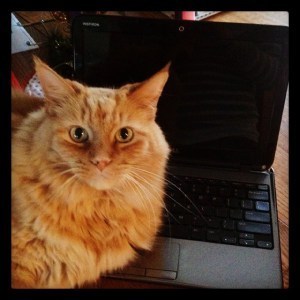
Chip disapproving of my doing work over Christmas, 2013.
This morning at my day job, I got an email from my dad: Chip is still alive but I don’t think he has many days let. I’m starting to think he’s near the point where it’s selfish to try to keep him going.
Which makes this either the worst day or the best day to write a post about my pets and my writing.
I replied to the email, telling my dad to do what he thought was right, and then I went to the bathroom and cried. No matter how many times you go through it — and I’ve said goodbye to a number of pets by now — cat death sucks.
Chip is my cat; we got him and his brother, Tuck, when I was 14. He and I haven’t lived in the same house since I left for college almost a decade ago, but every time I come home to visit he waits for me by the door, flops his 18-pound, orange-and-massively-fluffy self on the floor, and demands his ears be scratched. I’ll miss him.
But I’m pissed at the universe that only gave him twelve years on this particular plane of existence. Cats may have nine lives, but I want more of Chip’s to be with me. Or at least for him to get a few years longer in this one. I’m pissed at cancer. I’m pissed at surgery that won’t work and chemo that would just make him miserable. I’m pissed at myself that I’ve only been home once in the last six months, and won’t get to see him again. I’m pissed at death.
Read more at The Write Pet.

February 12, 2015
5 Lessons Learned from Doves
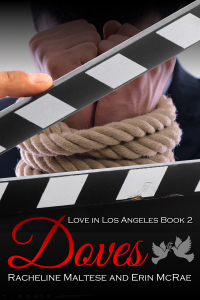 Doves, has been out for a few weeks (and is now available in paperback!). One of our favorite parts of the writing process is that we learn so much about a story once it’s out of our hands and into the hands of readers. And as readers have responded to Doves, we’ve learned more about ourselves, our audience, and the story that exists between us.
Doves, has been out for a few weeks (and is now available in paperback!). One of our favorite parts of the writing process is that we learn so much about a story once it’s out of our hands and into the hands of readers. And as readers have responded to Doves, we’ve learned more about ourselves, our audience, and the story that exists between us.
Victor is incredibly polarizing. Which is not a shock to us, at all, really, but we’re continually fascinated (and gratified) at the number of people who can’t stop staring at Victor and poking at the things he does, even if they hate him. And in Doves, even more so than in Starling, people either adore Victor or despise him with an intensity that continues to startle us.
Chekov’s gun doesn’t go off in Doves, but readers keep expecting it to. Doves is a dark, angry book, and our readers apparently expected it to keep getting darker and angrier than it even was. Which apparently means our readers think we’re even more screwed up than we actually are. Which is flattering, we think?
At the same time, Doves apparently broke some of our readers. We’ve heard from people who have had to read it slowly, or take lots of breaks, in order to get through it, because it hits too close to home. To some extent, we’re not shocked — there are definitely scenes we had to get up and take a walk after we wrote them, to get space from what just happened on the page. But Doves is resonating with readers in a deeper way than we even hoped.
Not everybody’s up for a threesome, or at least the particular threesome that shows up in this book. Which is cool! People either loved or hated a particular adventure in Doves — sometimes for what it was, and sometimes for how and why it happened.
Liam/Alex/Paul still isn’t a love triangle, but people keep thinking it is. To be fair, sometimes Paul thinks it is too, so they do have a point. Doves is about making relationships work with whatever rules you need. Liam, Alex, and Paul aren’t involved in a love triangle in any traditional sense, but there’s a deep and intense relationship going on between those three men, even if Paul struggles with jealousy and Alex has to learn how not to feel owned by his relationships.
Read more at Romance for the Rest of Us.

February 11, 2015
Avian30 at Harper Collins Romance Festival 2015
This past weekend, Racheline were on Harper Collins’s Romance Festival 2015. The festival is in celebration of all things romance and erotica, and this year, with Valentine’s Day coming up, there was a special focus on all the different forms love and relationships take.
For our part, we wrote about polyamory and romance, and about making relationships work no matter how many people are involved:
Love triangles are a long-standing trope, not just in romance but in all sorts of entertainment. There are good reasons for this. They are compelling. They are easy to understand. And they hit our buttons about being competitive, about winning, and about being chosen.
But what if love triangle stories weren’t about having to choose? What if they were about trying to make the triangle work?
Our romances often feature polyamorous relationships. Frequently, we include polyamory in the b-plot involving secondary characters as a way of providing impetus for our main couples to examine monogamy and decide if it’s the right choice for them. Sometimes it is. Sometimes it isn’t.
This engenders a range of reactions to our work: Some positive, some intrigued, and some very much opposed. That’s okay, because we’re all looking for different things not just when we read, but when we imagine happily ever after.


